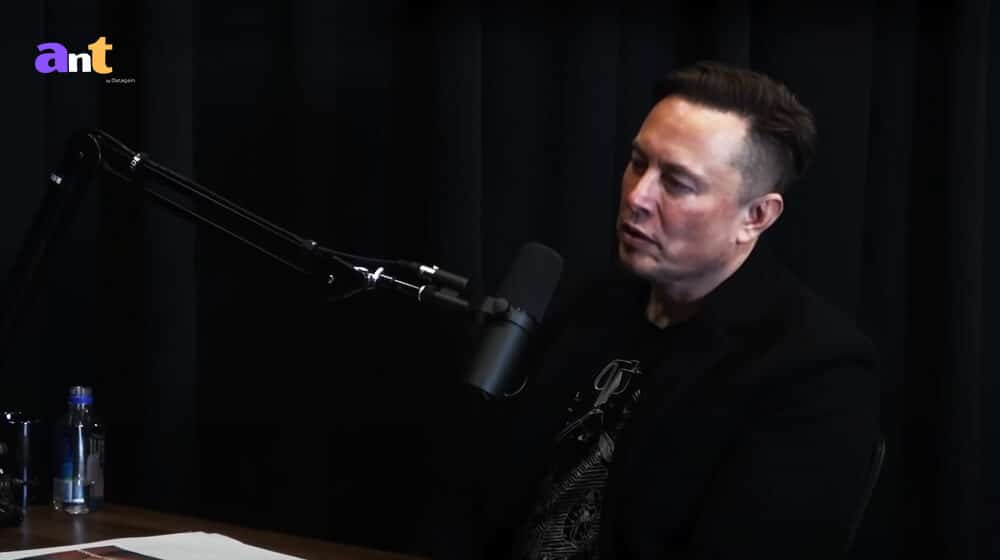
Home » Transcript Library » Elon Musk Advice for Young People Lex Fridman Podcast Clips Transcript
Elon Musk Advice for Young People Lex Fridman Podcast Clips Transcript
Lex Fridman 00:00:02
Like I mentioned, with SpaceX, you give a lot of people hope, and a lot of people look up to you, millions of people look up to you. If we think about young people in high school, maybe in college, what advice would you give to them about if they want to try to do something big in this world, they want to really have a big positive impact, what advice would you give them about their career, maybe about life in general?
Elon Musk 00:00:29
Try to be useful. Do things that are useful to your fellow human beings, to the world. It’s very hard to be useful. Very hard. Are you contributing more than you consume? Can you try to have a positive net contribution to society? I think that’s the thing to aim for, not to try to be sort of a leader for, just for the sake of being a leader or whatever. A lot of time the people you want as leaders are the people who don’t want to be leaders. [chuckles] So, if you live a useful life, that is a good life, a life worth having lived. Like I said, I would encourage people to use the mental tools of physics and apply them broadly in life. They are the best tools.
Lex Fridman 00:01:39
When you think about education and self education, what do you recommend? So, there’s the university, there’s self study, there is a hands-on sort of finding a company or a place or a set of people that do the thing you’re passionate about and joining them as early as possible. There’s taking a road trip across Europe for a few years and writing some poetry. Which trajectory do you suggest in terms of learning about how you can become useful, as you mentioned, how you can have the most positive impact?
Elon Musk 00:02:22
Well, I’d encourage people to read a lot of books. Basically, try to ingest as much information as you can and try to also just develop a good general knowledge, so you at least have like a rough lay of the land of the knowledge landscape. Try to learn a little bit about a lot of things, because you might not know what you’re really interested in. How would you know what you’re really interested in if you at least aren’t doing a peripheral exploration of broadly of the knowledge landscape? And talk to people from different walks of life and different industries and professions and skills and occupations. Just try, learn as much as possible. Man’s search for meaning.
Lex Fridman 00:03:20
Isn’t the whole thing a search for meaning?
Elon Musk 00:03:24
Yeah, what’s the meaning of life and all, but just generally, like I said, I would encourage people to read broadly in many different subject areas and then try to find something where there’s an overlap of your talents and what you’re interested in. So, people may be good at something or they may have skill at a particular thing but they don’t like doing it. So you want to try to find a thing where you have — that’s a good combination of the things that you’re inherently good at but you also like doing.
Lex Fridman 00:04:02
And reading is a super fast shortcut to, to figure out which — where are you, you both good at it, you like doing it, and it will actually have positive impact.
Elon Musk 00:04:13
Well, you got to learn about things somehow. So, reading a broad range, just really, read it. More important when as a kid, I read through the encyclopedia. So, that’s pretty helpful. And all those things that I didn’t even know existed, a lot, obviously.
Lex Fridman 00:04:34
It’s like as broad as it gets.
Elon Musk 00:04:36
Encyclopedias were digestible, I think, whatever, 40 years ago. So, maybe read through the condensed version of the “Encyclopedia Britannica,” I’d recommend that. You can always skip subjects, so you read a few paragraphs and you’re not interested, just jump to the next one. So, read the encyclopedia or skim through it. But I put a lot of stock and certainly have a lot of respect for someone who puts in an honest day’s work to do useful things. And just generally to have like not a zero-sum mindset, like, have more of a grow-the-pie mindset. If you sort of say, like, when we see people, perhaps, including some very smart people, kind of taking an attitude of, like, doing things that seem like morally questionable, it’s often because they have at a base, sort of axiomatic level, a zero-sum mindset. And they, without realizing it, they don’t realize they have a zero-sum mindset, or at least they don’t realize it consciously. And so, if you have a zero-sum mindset, then the only way to get ahead is by taking things from others. If the pie is fixed, then the only way to have more pie is to take someone else’s pie. But this is false, obviously, the pie has grown dramatically over time, the economic pie. So, in reality, you can have — I overuse this analogy, you can have a lot of, there’s a lot of pie. Pie is not fixed. So, you really want to make sure you’re not operating without realizing it from a zero-sum mindset, where the only way to get ahead is to take things from others, then that’s going to result in you trying to take things from others, which is not good. It’s much better to work on adding to the economic pie. So, creating more than you consume, doing more than you… So, that’s a big deal. I think there’s like a fair number of people in finance that do have a bit of a zero-sum mindset.
Lex Fridman 00:07:07
I mean, it’s all walks of life. I’ve seen that, one of the reasons Rogan inspires me is he celebrates others a lot. There’s not creating a constant competition, like, there’s a scarcity of resources. And what happens when you celebrate others and you promote others, the ideas of others, it actually grows that pie. I mean, every, like, the resources become less scarce. And that applies in a lot of kinds of domains. It applies in academia where a lot of people are very, see some funding for academic research is zero sum. And it is not. If you celebrate each other, if you get everybody to be excited about AI, about physics, about mathematics, I think there will be more and more funding, and I think everybody wins. Yeah, that applies, I think, broadly.
Elon Musk 00:07:56
Yeah, exactly.
Copyright Disclaimer
Under Title 17 U.S.C. Section 107, allowance is made for “fair use” for purposes such as criticism, comment, news reporting, teaching, scholarship, and research. Fair use is permitted by copyright statute that might otherwise be infringing.






